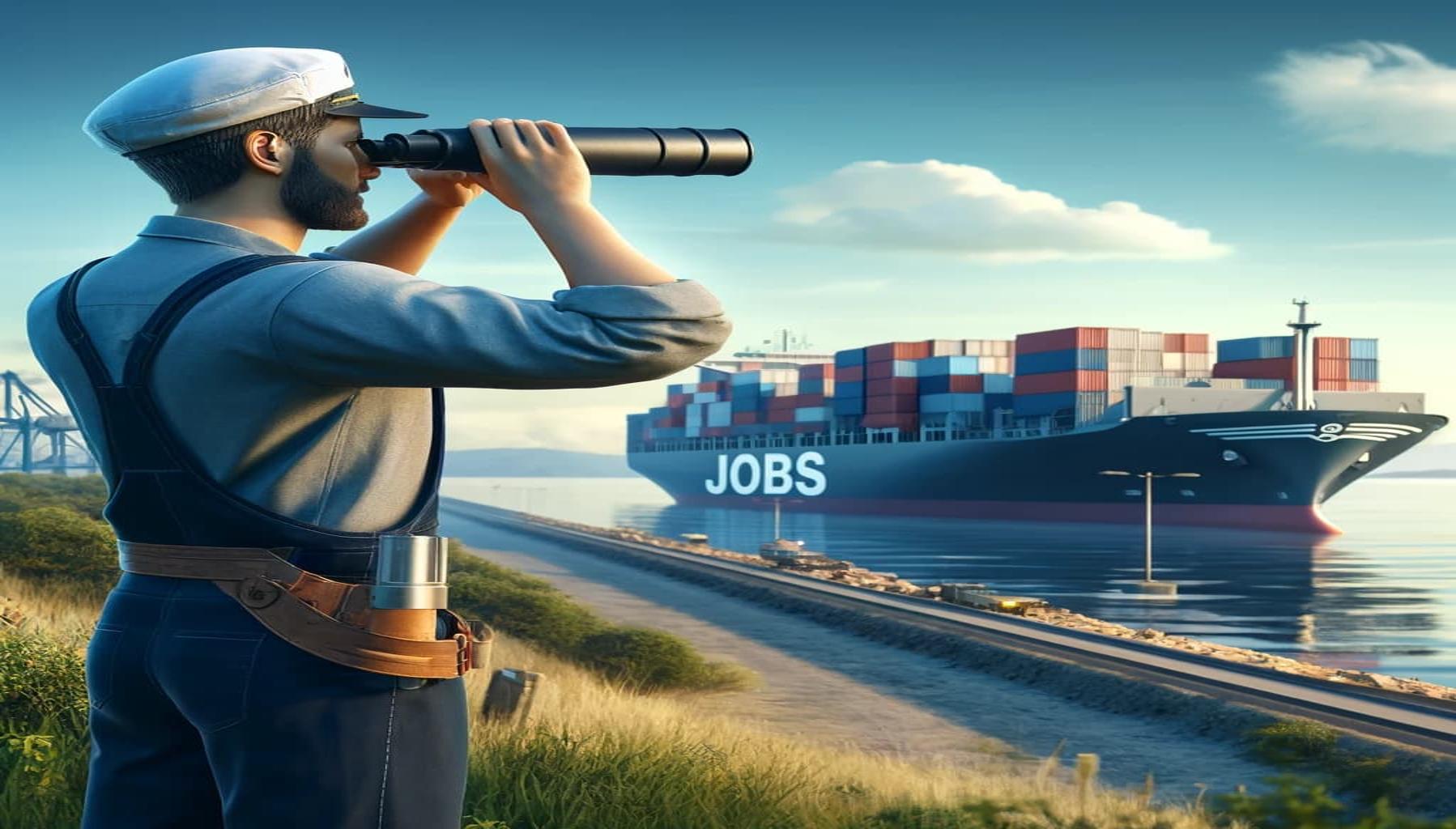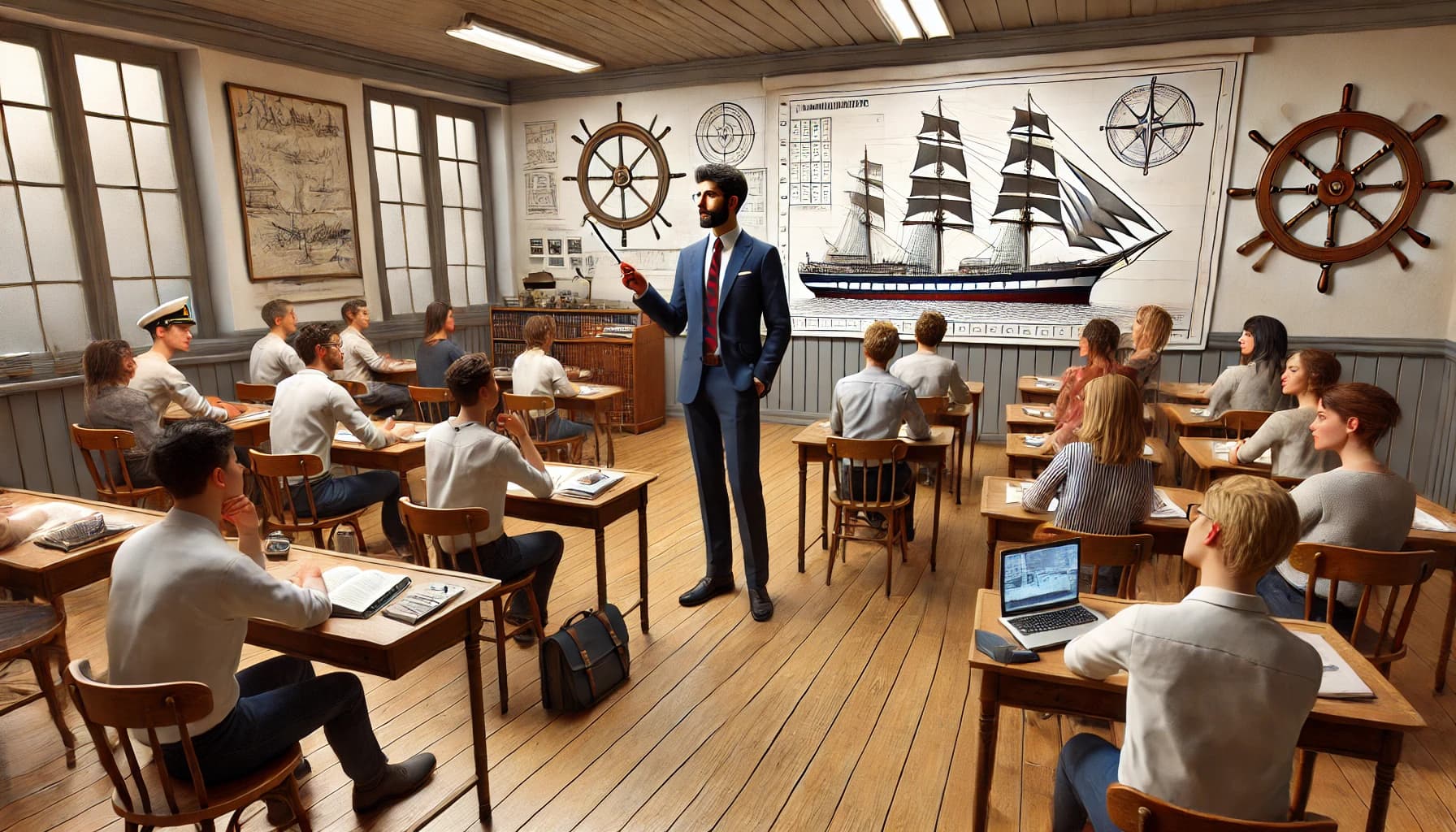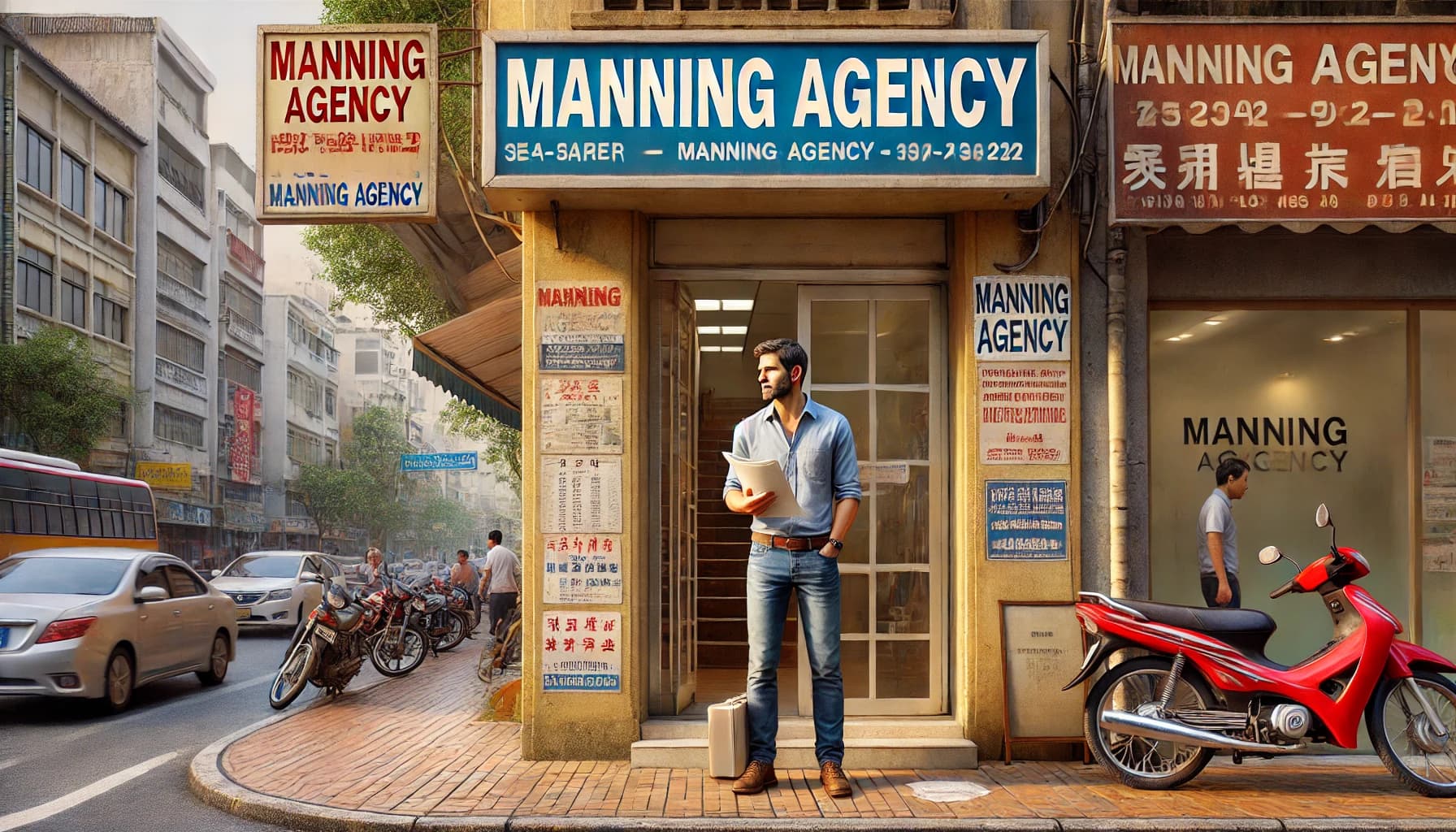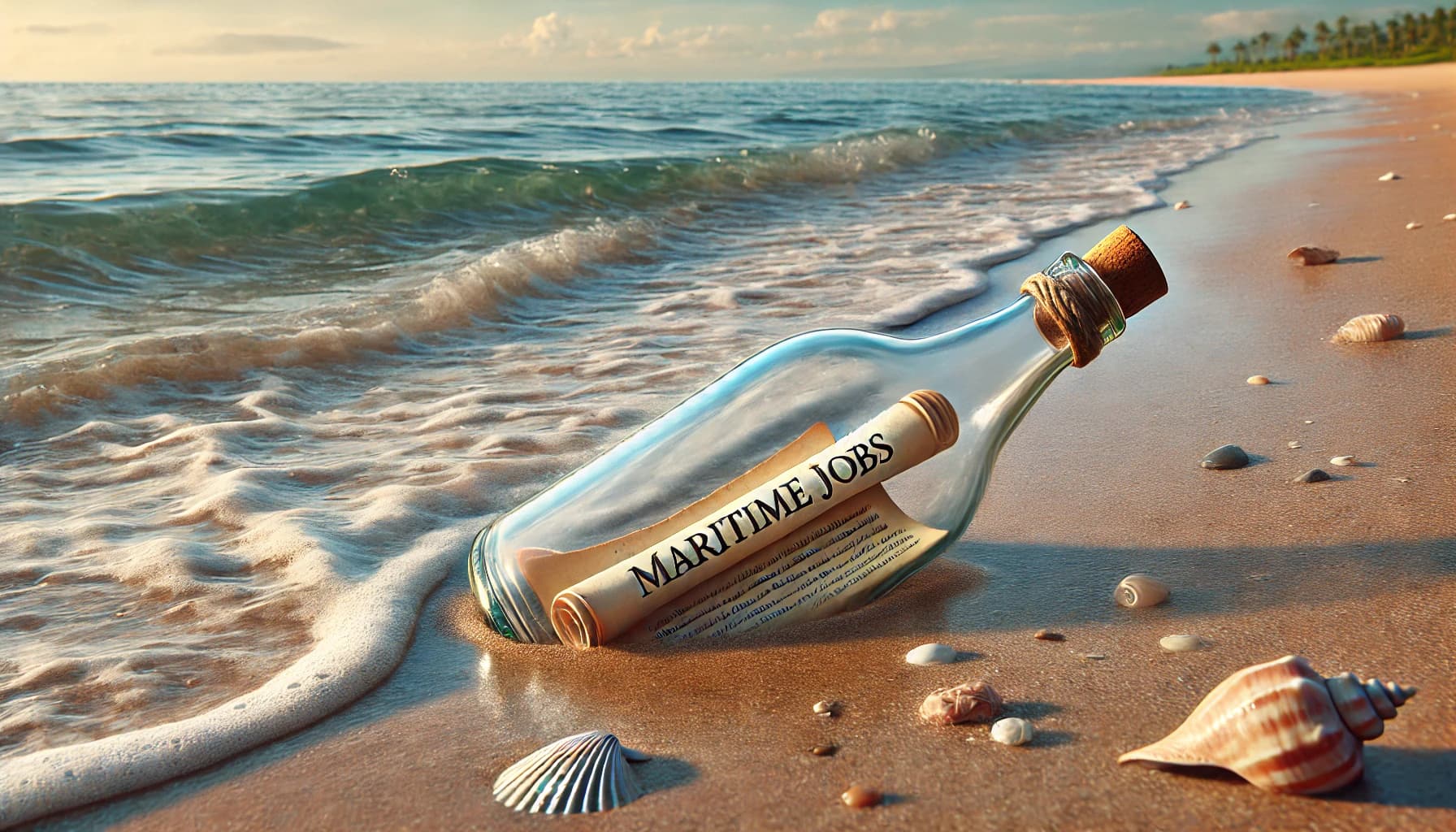
Shore-Based Maritime Jobs: What is a Shipbroker Job?
Thinking about a career in a shore-based maritime job? Ever wondered what a shipbroker does? Read our guide to shipbroking jobs and find out!
Read moreTips and practical advice including how to find jobs at sea, writing a seaman resume, interview prep and the things you should and shouldn't do when looking for seafarer jobs.

Thinking about a career in a shore-based maritime job? Ever wondered what a shipbroker does? Read our guide to shipbroking jobs and find out!
Read more
Do you want to fast track your maritime career and work in higher ranking seafarer jobs? Read our 9 top tips for advancing your career at sea.
Read more
Interested in shored-based maritime jobs? Want a maritime job on land after working at sea? Read on to find out all about port management jobs.
Read more
Unfortunately there are too many unscrupulous companies out there posing as maritime recruitment agencies, manning agents or crewing agencies whose sole purpose is to rip off seafarers
Read more
Are you struggling to find an entry-level seafarer job? Trying to start your maritime career without luck? Read our tips for finding a job at sea
Read more
Is your search for a maritime job taking too long? Having trouble finding a job at sea? It might be because you're making one of these mistakes.
Read more
Ever wondered what a maritime lecturer is, where they work and how you can become one? Our article on shore-based maritime jobs has the answers.
Read more
We make it easy for anyone looking for seafarer jobs to apply for vacancies. Create an online seafarer resume with a Martide User Profile and once you’ve filled in your information, that’s the one and only time you’ll ever have to do it. Here’s how to get started.
Read more
If you’re looking for seafarer jobs, we’re pleased to say that you’ve come to the right place! At Martide we have a quality selection of different types of maritime jobs ready and waiting for qualified seamen to apply to. In this blog post we’re going to look at how to find your next cargo ship job.
Read more
If you work in a maritime job and are wondering if you'd be better off changing employer or manning agency, don't do anything until you read this!
Read more
Are you a seafarer with experience in jobs at sea that include working on LNG fueled ships? If so you’re in high demand! As a greener cleaner energy Liquified Natural Gas is changing the future of the maritime industry. And seafarers who have the expertise will see their popularity rise!
Read more
One thing that can help you ace a seafarer job interview is to be prepared. And a big part of that is knowing what seamen questions and answers you might be asked. We look at how you can prepare for interviews for deck crew jobs by giving you the lowdown on what questions you’ll probably get asked.
Read more
It seems every other day there’s news about a seafarer who’s fallen victim to a fraudulent manning agent, shipping company, or non-existent seafarer job. Not only is this disappointing, it can also cost financially. So it’s crucial to be able to distinguish between genuine employers and fake ones.
Read more
If you’re applying for seafarer jobs, including entry level cargo ship jobs, in the engineering department of a vessel, this post is for you. Especially if you’ve been contacted by an employer and you’d like to know what some of the seaman interview questions and answers that you might be asked are!
Read more
We all have plenty of those annoying little tasks to do that fall under the umbrella of ‘life admin’ and if you’ve ever looked for a seafarers job you’ll probably agree that writing a resume for a seaman is one of them! That’s why building your maritime resume online with Martide is the way forward.
Read more
Are you a seafarer looking for jobs at sea? Want a way to find your next crewing vacancy quickly and easily wherever you are? Applied for maritime jobs and would like to track your application? The Martide mobile app is the solution if you’re looking for seafarer job vacancies on the go!
Read more
Interviews are nerve wracking, especially at the beginning of your career in seafarer jobs. So it makes sense to be prepared for any seaman questions and answers you might meet. It doesn’t matter whether your job interview is in person or video, you need to be on the ball to beat the competition!
Read more
If your maritime job search is getting you down and opportunities are few and far between, read our blog post for some tips on staying motivated.
Read more
If you usually try traditional ways to find seafarer jobs we’re going to ask you to take a leap of faith and try the online way of looking for jobs at sea. Bear with us while we explain why looking for seamen jobs online is the way to go. In fact we’ve 7 reasons why you should look for jobs online!
Read more
Lying on a resume is never a good idea, but lying on a seafarer resume is a real no-no for anyone who takes their maritime career seriously. The trouble with lying - or just exaggerating - when job seeking is that if (and when) you get found out, it can have terrible consequences on your future.
Read more
In this post we’re looking at an issue that can make a big difference when interviewing for maritime jobs: showing off! The thing is, you definitely want to highlight your skills and what sets you apart from other candidates, but you need to do it in a way that doesn’t come across as big headed.
Read more
Writing a maritime resume isn’t something people do for fun. It’s time consuming, it can be hard to know what to include and what to omit, and checking for spelling errors is a pain. So we’re giving you a headstart by telling you 10 big mistakes people often make when writing a resume for a seafarer.
Read more
Are you about to start writing a maritime resume? Perhaps you’re thinking about dusting off your current seafarer CV to apply for jobs at sea after a period onshore. Whatever stage in your sea career you are at, trash talking a former employer on your seafarer resume is a real no no! Here’s why.
Read more
When it comes to finding jobs at sea some places might be more obvious than others. You know about seafarer jobs boards, maritime recruitment agencies and Facebook. In this post we’re looking at another social media website to find seafarer jobs: Twitter. Here’s how to create an account and profile.
Read more
The nature of the shipping industry means many of Martide’s clients operate globally. And the seafarers who apply for our seafarer jobs are located anywhere from Ukraine to China. This means conducting interviews face-to-face can be a real challenge - but Skype and Zoom interviews can save the day.
Read more
Writing a seafarer resume that stands out is vital if you want employers to call. Find out what to include - and what not to include - in yours.
Read more
No matter how much experience you have in the maritime industry being prepared for an interview is the difference in acing it and landing a job or contract or blowing it. Preparation enables you to be more focused and more likely to impress your potential employer. Here’s how to do that.
Read more
If you’re not naturally organized it can be overwhelming always thinking about finding your next seafarer job vacancy. That’s why we’re looking at how to organize your search for jobs at sea. Because when you’re more organized you can concentrate on your current job and enjoy your shore leave more!
Read more
Have you written a maritime resume and found it hard to sell your skills without showing off? Boasting on a CV is a major turn off for most employers, including shipping companies and maritime recruitment agencies. But you still need to tell a potential employer what your strengths are. Here’s how.
Read more
In a series of articles Martide is looking at everything to do with finding jobs in the maritime industry. We’re exploring the different ways you can find jobs at sea, from finding out which job is right for you to maritime training and from organizing your job search to impressing an interviewer.
Read more
It can be hard writing a resume for a seafarer. You may have lots of experience and be unsure what to include or omit. Or you might be looking for entry level maritime jobs and worry you don’t have enough sea time. But one thing you must do when writing a maritime resume is leave out the cliches!
Read more
You need to be prepared when you're applying for seafarer jobs so here are 9 helpful tips to help you to nail that seaman job interview!
Read more
You've been invited to seafarer jobs interviews. Now you need to impress the potential employer so they want to sign that contract. The best way to do that is to be polite, personable, professional - and give great answers to their questions. Martide tells you what those questions might be.
Read more
You’ve written your maritime resume, you’re looking for your next contract - but is LinkedIn at the top of your list when you’re looking for new seafarer jobs? Maybe not. But you shouldn’t ignore LinkedIn just because you’re not working a 9 to 5 job.
Read more
If you're applying for jobs at sea you need to know how to write an effective seafarer resume & cover letter. Our tips will help you.
Read more
A career in the maritime industry doesn’t have to mean working at sea. If you’re thinking of making the transition to one of the many maritime jobs on shore, you might be feeling a little trepidation. We take a look at how to make the leap from a seafaring job to working permanently ashore.
Read more
There’s a number of ways to find seafarer jobs. Whether you’re an experienced seaman or looking for entry level cargo ship jobs, we take a closer look here. From social media to crew jobs boards to working with a maritime recruitment agency, here’s the complete lowdown on where to find jobs at sea.
Read more
Can you write a seafarer resume using A.I.? Read this to find out - and we'll even let you into a secret that gives you an even easier option!
Read more
Considering a maritime career ashore or switching to a shore-based maritime job? Here's all you must know about marine regulatory authority jobs.
Read more
Interested in a maritime industry career but don't want to work at sea? Marine Surveyor jobs are just one of the many shore-based maritime jobs.
Read more
Is it time you updated your seafarer resume? Writing a maritime CV can be a daunting task but if you're looking for a job at sea, we can help.
Read more
You’ve graduated and want to start your career in maritime jobs by landing one of those coveted seafarer jobs. But in an industry that often chooses experienced seamen over cadets that can be easier said than done. If you’re a newly qualified seaman here's some tips on how to kickstart life at sea.
Read more
Whether you’re thinking of embarking (pun intended!) upon careers at sea and are looking for entry level cargo ship jobs or you’re a seasoned professional looking for a change of job or company, Martide has the jobs at sea you’re looking for.
Read more
If you’ve applied for seafarer jobs through Martide, employers and manning agents can communicate with you about your applications through our messaging feature. When you create an account with Martide you’ll be given your own private inbox - here's how to get the most from it.
Read more